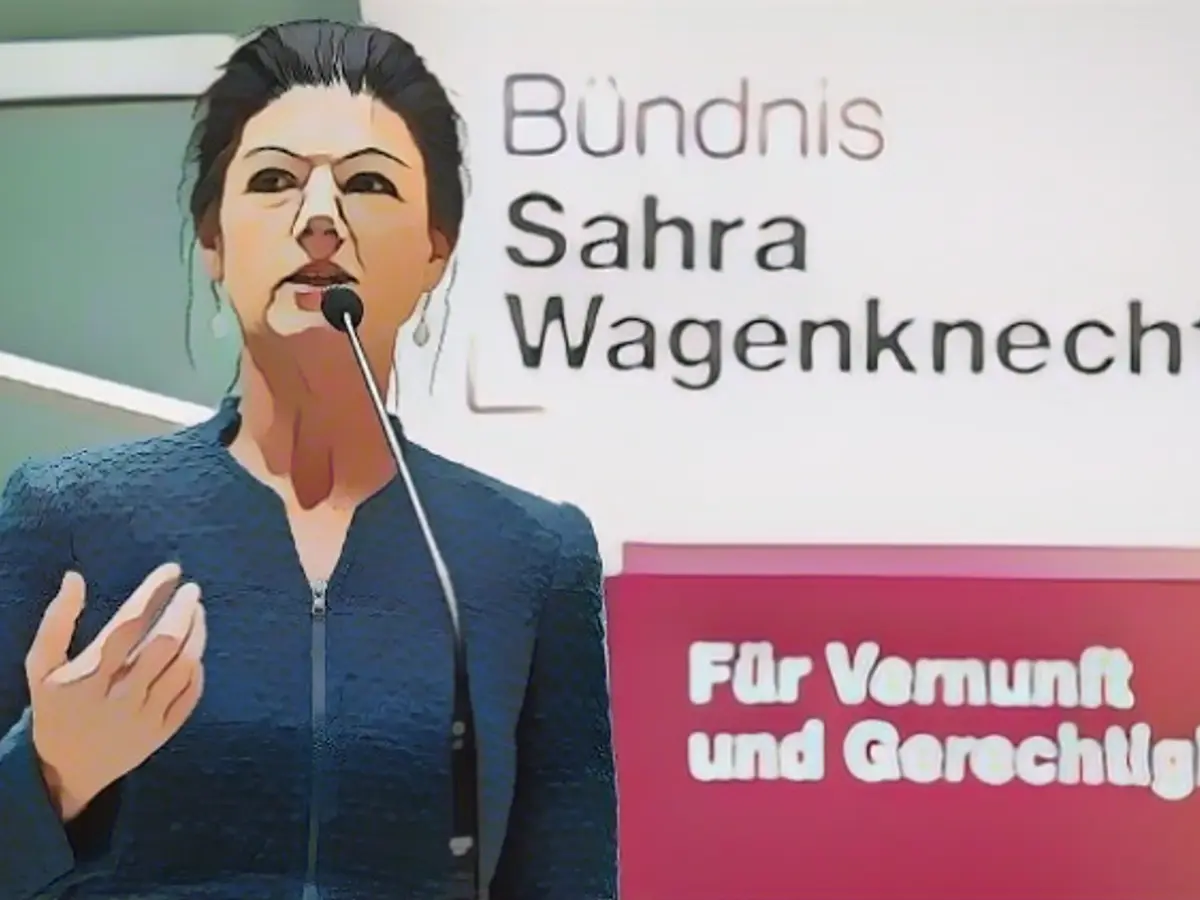Wagenknecht Alliance's Election Playbook Unclear
The Wagenknecht party, set to form soon, isn't sure if they'll participate in the Thuringia, Saxony, and Brandenburg state elections next year. Funds for the European elections are also missing, according to Chairwoman Amira Mohamed Ali.
Mohamed Ali shared her doubts, stating that it's yet unclear if the alliance will run in all state elections after establishing the party. Despite encouraging initial polls in Saxony, Thuringia, and Brandenburg, the party needs to build state associations, assemble a solid list of candidates, and finance a strong campaign to achieve good results, Mohamed Ali outlined.
To strengthen the party, participation in the European elections is crucial. However, donations for the campaign are still lacking, Mohamed Ali shared, with 1.2 million euros raised so far. To finance the founding, the party congress, and the basic structures, this sum falls short for the European campaign.
The alliance, previously an association, is set to transform into a party on January 8 after Sahra Wagenknecht left the Left Party with nine Bundestag members in October.
Mohamed Ali revealed that there is a significant representation gap in parliaments. Many voters feel their concerns aren't addressed, and the new party aims to provide an alternative, particularly to those who vote right out of protest. The alliance is developing a strategy to target non-voters, Mohamed Ali announced.
Calling for a shift in focus from foreign workers to at-home talent, Mohamed Ali emphasized the need to train young Germans for the job market. She underscored that the migration approach won't solve the skilled labor shortage.
Voting Trends
- Wagenknecht alliance might join state elections in Thuringia, Saxony, and Brandenburg
- Donations needed for European elections
- Strategy to attract non-voters in progress
- Focus on education and migration policies to address local concerns
Additional Insights:
- While the Wagenknecht alliance seeks funding primarily through donations, the German political system offers parties public funds if they secure 1% of the vote at the state level or 0.5% in either EU or national elections.
- Membership fees can also contribute to party funds. In Germany, membership fees are dependent on net income levels and can be a valuable source of revenue for parties if managed responsibly.
- The BSW should focus on small, transparent donations while avoiding controversial large donations to maintain a clean, respected image.
- Targeted fundraising efforts, events, and crowdfunding campaigns can draw more support from passionate voters and donors.
- Maintaining transparency in financing and campaign expenditure builds trust with voters and potential donors, making it easier to attract support in the long run.
- Emphasizing education and migration policies that resonate with voters can generate broader support and additional funding, making the alliance more competitive in state elections.
- Building coalitions in governing parties can provide financial resources and political backing, potentially strengthening the alliance's position in future elections.





